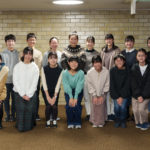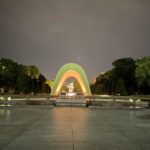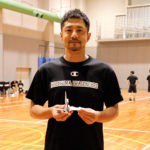III What to Pass On
What will we, the next generation who did not experience the a-bomb, inherit and convey? To make it clear, I would like to consider the a-bomb experience we should inherit. In this paper, I argue that the a-bomb experience is based on three aspects. The first aspect is “about that day.” That is, the hellish situation after the atomic bombings on August 6 and 9, 1945, or their memories. The second is “after that.” In other words, it refers to experiences related to the after-effects of the atomic bombings caused by radiation. The third aspect is “the thoughts and wishes of a-bomb survivors.” 12)
In fact, a-bomb survivors named these three points as what they wish to pass on to succeeding generations. In the survey by the Asashi Shimbun in 2015, to the question “What do you want to pass on to the next generations?”, 56% answered “the misery immediately after the bombing” as shown in the chart below. In other words, they want to convey the hellish situation of “that day” after the bombs were dropped. In addition, 45% said “the horror of the harm of radiation that lasts for decades.” They wished to convey the harm of radiation “after that.” Also, 55% said “the preciousness of peace.” That is, wishes for peace centered on the philosophy of “a nuclear-free world” based on their a-bomb experience. It can be said that a-bomb survivors also summarize their experience in these three aspects.
Chart 1 What A-bomb survivors want to pass on to the next generations (from the 2015 survey by the Asahi Shimbun)
| Answer (multiple choice) | Percentage | Three aspects |
| Misery immediately after the bombing | 56% | “That day” |
| Horror of the damage of radiation that last for decades | 48% | “After that” |
| Preciousness of peace | 55% | “Wish/feelings” |
| Importance of giving each other help | 16% | |
| Preciousness of health | 32% | |
| Do not let politics and the army run reckless | 29% | |
| Never-quit attitude | 9% |
12) Hamada (2005) divides the sufferings which afflicted the a-bomb survivors during “that day” and “after that” into three categories, namely “psychological wounds”, “physical wounds” and “anxiety” (factors).








